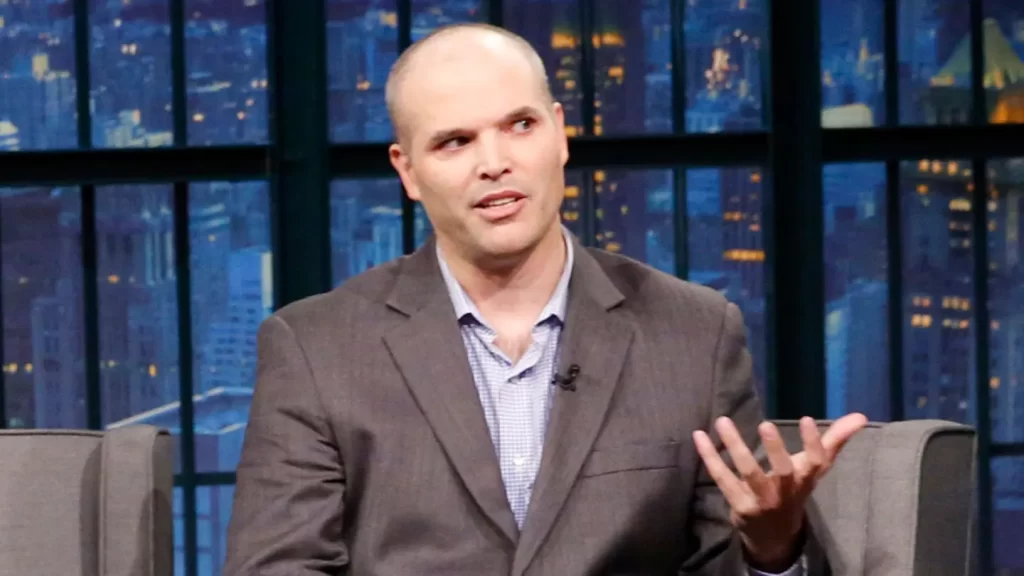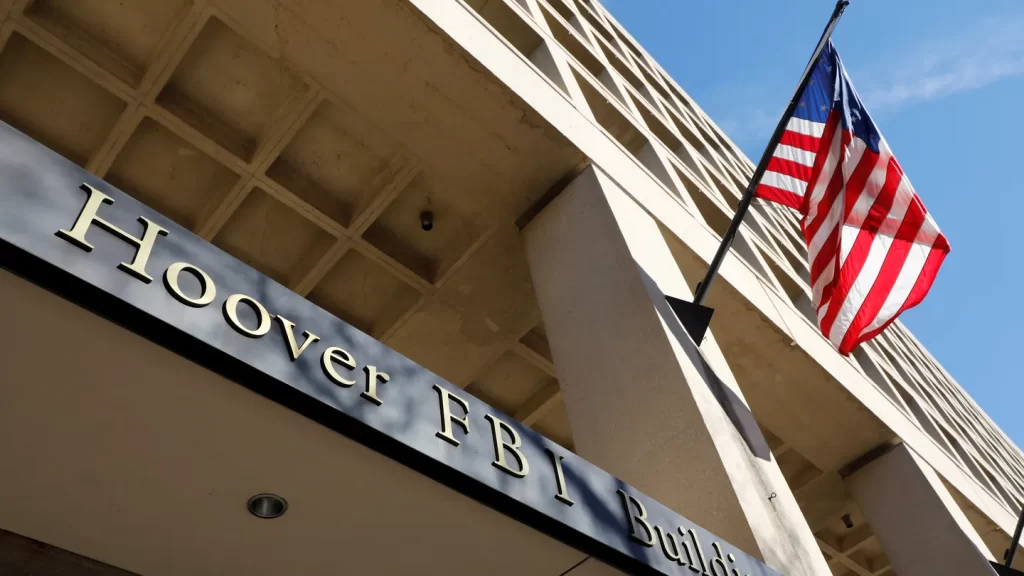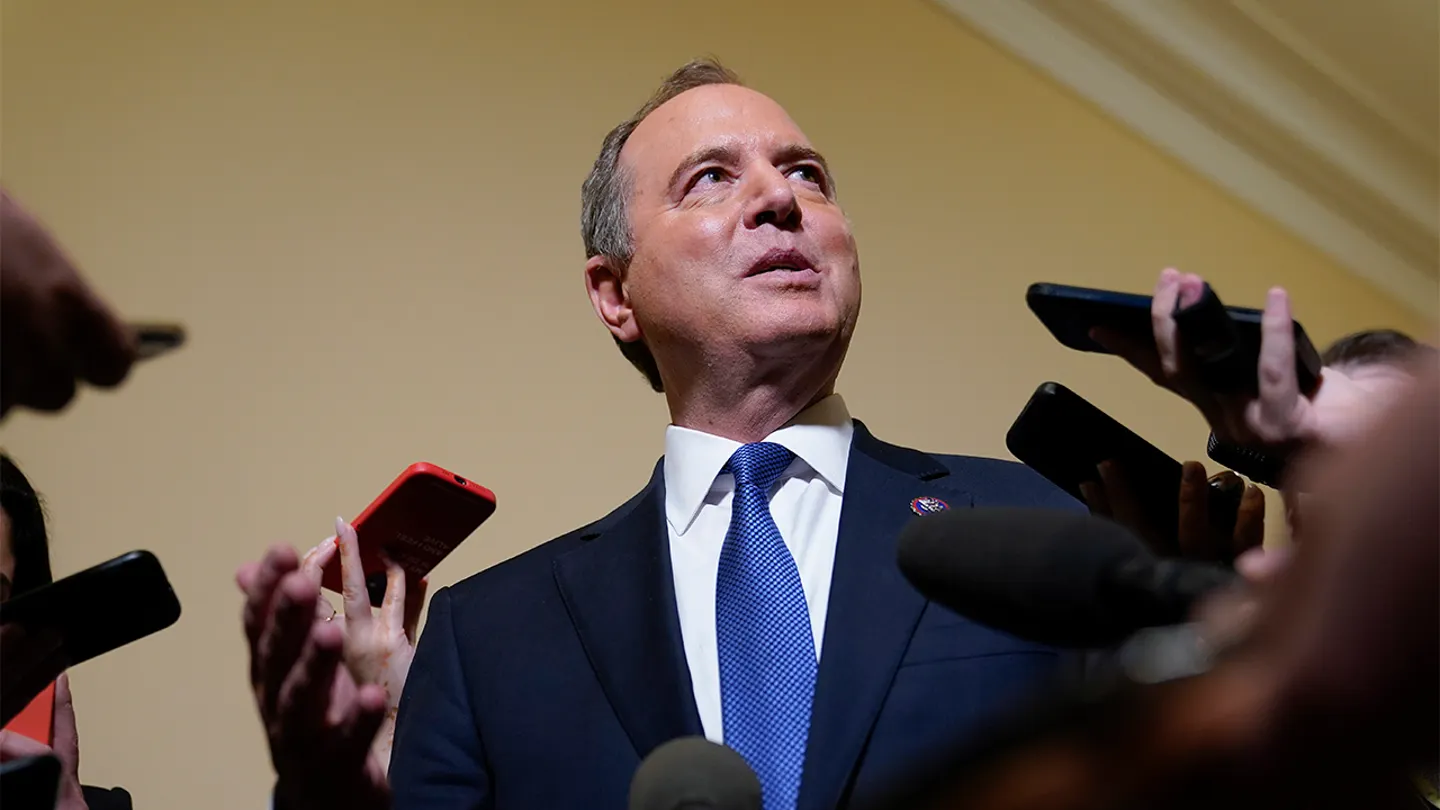Twitter Files: Rep. Adam Schiff’s office requested tech giant to suspend accounts
Matt Taibbi also reports on the Trump State Department’s eagerness to engage with Twitter
It was revealed in the latest “Twitter Files,” that the office of Rep. Adam Schiff, D-Calif., made requests for Twitter to suspend certain accounts.
In the second of two back-to-back batches of Elon Musk’s “Twitter Files” shared on Tuesday by Substack writer Matt Taibbi, he reported that Twitter “received an astonishing variety of requests from officials asking for individuals they didn’t like to be banned.”
An example he shared was one sent in November 2020 by Schiff’s office, who contacted Twitter hoping the tech giant would take action regarding “alleged harassment from QAnon conspiracists” against Schiff’s staff, including aide Sean Misko.
Schiff’s office also requested that Twitter “stop the spread of future misinformation on Twitter” regarding committee staff and “label and reduce the visibility of any content.”
“Even Twitter declined to honor Schiff’s request at the time,” Taibbi wrote, noting Twitter’s responses to Schiff’s office repeatedly saying “we don’t do this.” As Taibbi noted, though, Sperry was later suspended.
Schiff’s office did not immediately respond to Fox News’ request for comment.
Much of the twelfth installment of the “Twitter Files” was focused on eagerness from the State Department’s Global Engagement Center (GEC), which Taibbi described as a “fledgling analytic/intelligence” arm to participate in guiding Twitter’s moderation of content and how it often used the media to clash with the tech giant beginning in February 2020 as the coronavirus pandemic was underway.
“The GEC flagged accounts as ‘Russian personas and proxies’ based on criteria like, ‘Describing the Coronavirus as an engineered bioweapon,’ blaming ‘research conducted at the Wuhan institute,’ and ‘attributing the appearance of the virus to the CIA,’” Taibbi wrote. “State also flagged accounts that retweeted news that Twitter banned the popular U.S. ZeroHedge, claiming the episode ‘led to another flurry of disinformation narratives.’ ZH had done reports speculating that the virus had lab origin.”
Yoel Roth, Twitter’s then-head of trust and safety, push backed at GEC’s own analysis allegedly based on data from the Department of Homeland Security that “nearly 250,000” Chinese-linked accounts were peddling propaganda and disinformation about COVID. Roth saw GEC’s report partly as “an attempt to insert themselves” into conversations Twitter has had with intel agencies including the DHS and FBI.
The GEC eventually agreed to “loop in Twitter” before going public with its own findings, but the conflict continued between Twitter and the State Department arm. As Taibbi reported, tech giants including Twitter, Facebook and Google opposed the GEC’s inclusion in government talks. Roth at the time saw the GEC as “political” unlike the FBI and DHS. Roth also saw “major risks” for Twitter being chummy with the GEC “especially as the election heats up,” according to an email.
Roth further expressed his distrust in the “press-happy” GEC to FBI special agent Elvis Chan, who had constant communication with Twitter. Taibbi wrote, “Chan reassured him it would be a ‘one-way’ channel, and ‘State/GEC, NSA, and CIA have expressed interest in being allowed on in listen mode only.'”
Taibbi continued quoting the FBI agent, “‘We can give you everything we’re seeing from the FBI and USIC agencies,” Chan explained, but the DHS agency CISA ‘will know what’s going on in each state.’ He went on to ask if industry could ‘rely on the FBI to be the belly button of the USG.’ They eventually settled on an industry call via Signal.”
“Twitter was taking requests from every conceivable government body, beginning with the Senate Intel Committee (SSCI), which seemed to need reassurance Twitter was taking FBI direction. Execs rushed to tell “Team SSCI” they zapped five accounts on an FBI tip,” Taibbi tweeted with screenshots of emails. “Requests arrived and were escalated from all over: from Treasury, the NSA, virtually every state, the HHS, from the FBI and DHS, and more.”
“Twitter honored almost everyone else’s requests, even those from GEC – including a decision to ban accounts like @RebelProtests and @BricsMedia because GEC identified them as ‘GRU-controlled’ and linked ‘to the Russian government,’ respectively,” Taibbi added.
By 2020, requests from the intel community “came in bulk” and carried on into the Biden administration. According to Taibbi, one memo from the 2020 showed that Twitter was “warned about publicity surrounding a book by former Ukraine prosecutor Viktor Shokhin, who alleged ‘corruption by the U.S. government’ – specifically by Joe Biden.”
In the eleventh installment reported earlier in the day by Taibbi, Twitter had undergone a “PR crisis” following the 2016 presidential election as it was being pressured by Democrats to take action on alleged Russian influence on the platform as Facebook was doing in 2017, something Taibbi concluded influenced Twitter to embrace the intel community.

Substack writer Matt Taibbi reported on the first installment of the “Twitter Files,” which focused on the tech giant’s decision to censor the Hunter Biden laptop story. (Lloyd Bishop/NBCU Photo Bank/NBCUniversal via Getty Images via Getty Images)
Each installment of the “Twitter Files” was shared by the journalists tapped by Elon Musk in lengthy Twitter threads addressing various controversies. Taibbi went viral with the first installment in early December with his “Twitter Files” focusing on Twitter’s internal discussions leading to it censor the Hunter Biden laptop story during the 2020 presidential election, with some officials struggling to explain how it violated its “hacked materials” policies.
It was later revealed that the first batch of “Twitter Files” was vetted without Musk’s knowledge by Twitter deputy general counsel Jim Baker, who previously served as the FBI’s general counsel and was involved in the Russia probe. Musk fired Baker shortly thereafter.
Baker was swept up Taibbi’s reporting about the suppression of the Hunter Biden story, telling his colleagues at the time, “I support the conclusion that we need more facts to assess whether the materials were hacked” but added, “it’s reasonable for us to assume that they may have been and that caution is warranted.”
Additionally, Taibbi initially reported, “Although several sources recalled hearing about a ‘general’ warning from federal law enforcement that summer about possible foreign hacks, there’s no evidence – that I’ve seen – of any government involvement in the laptop story.” It is unclear whether Baker’s involvement in vetting the “Twitter Files” led Taibbi to draw that conclusion and whether Baker omitted files that would have shown the federal government intervening in Twitter’s suppression of the Hunter Biden laptop story.

Jim Baker was fired by Elon Musk as Twitter’s deputy general counsel after revelations that he had vetted the first batch of the Twitter Files without Musk’s knowledge. (Ron Sachs/Consolidated News Pictures/Getty Images)
The second installment published by The Free Press editor Bari Weiss revealed Twitter’s “blacklisting” of prominent conservatives, including Fox News host Dan Bongino, Turning Point USA’s Charlie Kirk, as well as Stanford University’s Dr. Jay Bhattacharya, a longstanding opponent of COVID groupthink during the pandemic who expressed opposition to lockdowns.
Internal communications also reveal Twitter staffers admitting that the popular right-wing account Libs of TikTok never violated its “hateful conduct” policy despite being punished several times for allegedly doing so.
Those revelations appear to contradict what former Twitter CEO Jack Dorsey told Congress in 2018, when he testified under oath that Twitter did not censor or shadowban conservatives.
The third, fourth and fifth installments of the “Twitter Files” focused on the permanent suspension of former President Trump around the Capitol riot in January 2021.
Taibbi reported how Twitter circulated election-related tweets from various users leading up to the 2020 election that were “flagged” by the FBI as being problematic.

Independent journalists Matt Taibbi and Bari Weiss were tapped by Elon Musk to report on the “Twitter Files.” (Daniel Zuchnik/WireImage, Bari Weiss)
Independent writer Michael Shellenberger revealed that Dorsey was phoning it in as he was on vacation while his deputies were pushing to deplatform Trump, with Twitter’s former head of trust and safety Yoel Roth particularly spearheading efforts to censor other users pertaining to tweets about the 2020 election. It became known that Roth met on a weekly basis with the FBI, Department of Homeland Security and the office of the Director of National Inteligence in the weeks leading up to the election.
Weiss addressed the pressure Twitter management was facing from its employees who called for Trump’s permanent suspension, though the Free Press editor also revealed several Twitter staffers who enforce policies did not believe Trump’s tweets from Jan. 6 actually violated its rules.
Part six of the “Twitter Files” put a spotlight on Twitter’s close ties with the FBI. Taibbi alleged the law enforcement agency was acting like a “subsidiary” of the tech giant, revealing communications that showed FBI agents systemically flagged Twitter users for tweets that included “possible violative content” pertaining to the election.
In response to the “Twitter Files,” a spokesperson for the FBI told Fox News Digital, “The FBI regularly engages with private sector entities to provide information specific to identified foreign malign influence actors’ subversive, undeclared, covert, or criminal activities. Private sector entities independently make decisions about what, if any, action they take on their platforms and for their customers after the FBI has notified them.”
The FBI’s routine contact with Twitter regarding users that would ultimately face punishment for their tweets has raised major flags about potential First Amendment violations.

FBI headquarters building is seen in Washington, U.S. Pro-Russian hackers have claimed to have hacked the FBI website this week. (REUTERS/Yuri Gripas)
In part seven, Shellenberger framed the Twitter’s coziness with the FBI in the context of the Hunter Biden laptop story, showing the FBI’s requests for Twitter to share sensitive data of its users, which Twitter refused to give, and the agency’s repeated inquiries into whether Twitter has seen foreign activity leading up to the 2020 election, something Twitter at the time said it hadn’t. On Oct. 13, 2020, just one day before the New York Post broke its Hunter Biden story that was quickly censored, Twitter received ten unknown documents from the FBI through its secure one-way Teleport channel.
One email from February 2021 shows the FBI paid Twitter over $3.4 million since October 2019 over the course of their partnership, as Twitter’s policies seek reimbursements when it comes to producing information as part of a legal process.
Roth had even participated in what was dubbed the “Hack-and-Dump Working Group” with the Aspen Institute in September 2020 to elaborately simulate how the media and Big Tech should handle something like the Hunter Biden laptop.
The FBI remained defiant amid criticism, telling Fox News in a statement “The correspondence between the FBI and Twitter show nothing more than examples of our traditional, longstanding and ongoing federal government and private sector engagements, which involve numerous companies over multiple sectors and industries. As evidenced in the correspondence, the FBI provides critical information to the private sector in an effort to allow them to protect themselves and their customers… It is unfortunate that conspiracy theorists and others are feeding the American public misinformation with the sole purpose of attempting to discredit the agency.”
Part eight, shared by Intercept investigative reporter Lee Fang, exposed Twitter’s assistance in the Pentagon’s foreign influencing campaigns, allowing the military to use covert accounts to push out propaganda overseas despite it being against Twitter’s own policies. Taibbi separately reported in the ninth installment about Twitter’s constant interactions with “OGAs” (other government agencies) including the CIA.
The tenth batch of Twitter Files, this time reported by writer David Zweig, focused on COVID and the platform’s efforts to enforce its so-called “misinformation” policy, reporting “both the Trump and Biden administrations directly pressed Twitter executives to moderate the platform’s pandemic content according to their wishes.” Zweig highlighted a memo written by Lauren Culbertson, Twitter’s Head of U.S. Public Policy, who claimed the Biden team was “very angry” about Twitter not taking action to “de-platform” various accounts based on meetings with the White House. Musk teased there’s “much more” Twitter Files to reveal in 2023 particularly about COVID and how top doctors and scientists were “actively suppressed on Twitter,” presumably for going against the White House-approved narrative.

